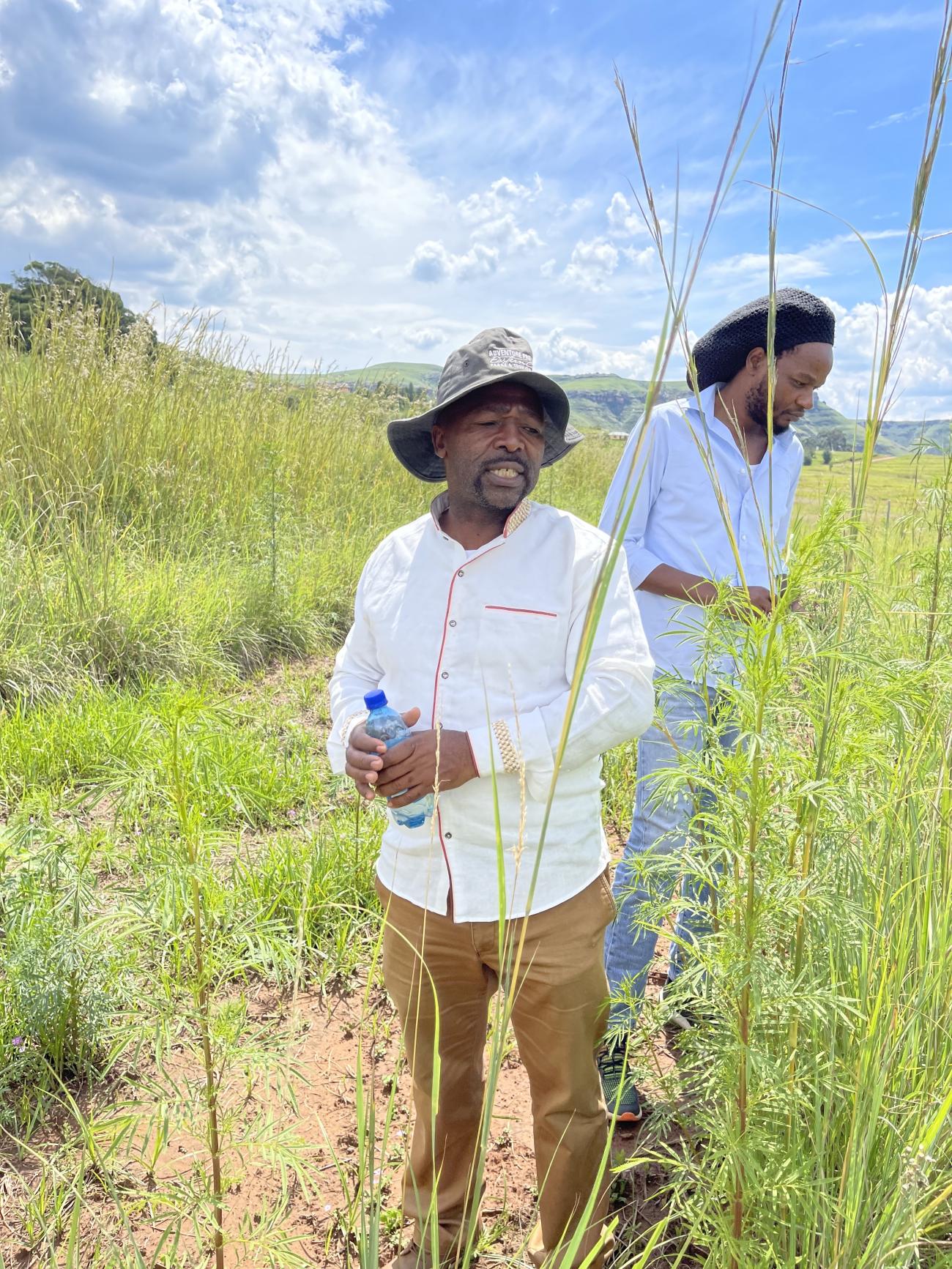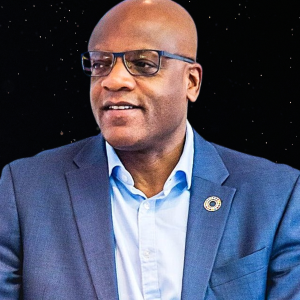Dr. Ayanda Sigwela, 52, was the designated Rhodes University focal point for the UNEP-led (EbA) project. He is a former lecturer on zoology at Nelson Mandela Metropolitan University, he specializes in restoration ecology.
InFocus’s Masimba Tafirenyika interviewed him during their mission to Eastern Cape on his role in the project. Here are excerpts from the interview.
What is your specialty and what does it entail?
My research is on restoration ecology. A restoration ecologist is a person who tries to reverse the impact of land degradation and get it back to its original state. It entails the rehabilitation of degraded areas. For example, it could be the impact of mining on the land or soil erosion. We come up with ideas of how to mitigate it and how to manage the impacts caused by such human activities.
When did you start working on the UNEP pilot project?
We started working with UNEP between 2014 and 2015. The current pilot project was started in 2019, just before the COVID-19 pandemic hit.
What was your role in this project?
I was mainly an on-ground facilitator. Rhodes University was the implementing entity. I was facilitating and coordinating the implementation on behalf of Rhodes University. I also ensured that water reservoir tanks were purchased, delivered, and installed.
Were you working with other people from Rhodes University?
I was the only one from Rhodes for the direct on-ground implementation. But the university contracted another consultant to ensure that gender-specific issues were taken into consideration in implementing the project.
What would you say were the major successes accomplished while working on this project?
Firstly, the major success was having a collaborative cooperative governance platform, whereby different NGOs, government entities, institutions, and nature conservation agencies could come under one roof with a common agenda for ecosystem-based adaptation. Some departments and most government offices work in silos, hence this platform was a huge success because of the forged collaboration between different entities. The municipal support unit of the Department of Forestry, Fisheries and the Environment in the Joe Gqabi District Municipality offered itself as the secretariat for this collaborative platform. The secretariat will see to it that this platform functions even after the completion of the UNEP project. Secondly, most municipalities see themselves as service providers to communities. They do not usually get involved in anything that is not linked to water, electricity or houses and roads.
A huge stride was achieved when ecosystems adaptation was embedded in the municipal policy framework, which is the integrated developmental plan (IDP). Now IDP speaks to ecosystems-based adaptation issues.
Thirdly, respect to communities is important. There is truth that communities do not support projects that don’t benefit them financially. This pilot project provided water reservoirs to communities that had no access to clean water and proper infrastructure, where women and mothers were no longer going to walk miles to source water for their families.
We all know that in any human undertaking, there are always challenges encountered along the way. What would you consider the main challenges you faced?
The biggest major challenge we faced was with municipalities. As part of the ground activities, we were hoping that water pipes would have been connected to ensure water supply is delivered to communities. But nothing has been done even today.
This is a huge stress factor for me because I am not sure how to persuade the municipalities to ensure delivery. I believe that I have done all that I could. I communicated with higher officials and on-the-ground officials, but things are just not getting done.
Another challenge is the reference I made to the fact that communities do not engage in anything if there are no tangible benefits like money.
Even though the tanks were to supply water to seedlings in their grounds, the communities always asked if they would be paid in due course. There is seemingly an attitude that whatever is being done even for their own benefit, they expect to be paid. This is a big problem.
To that effect, in future projects we could do better to include such (and other unforseen) expenses in the budget.








